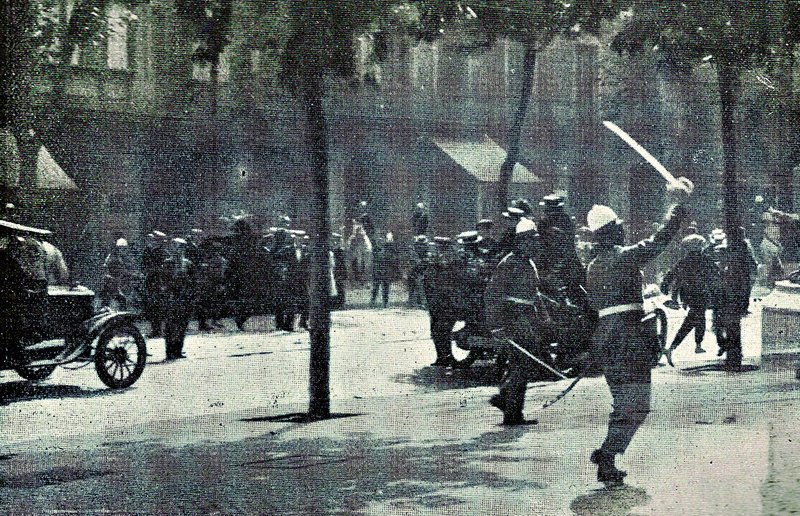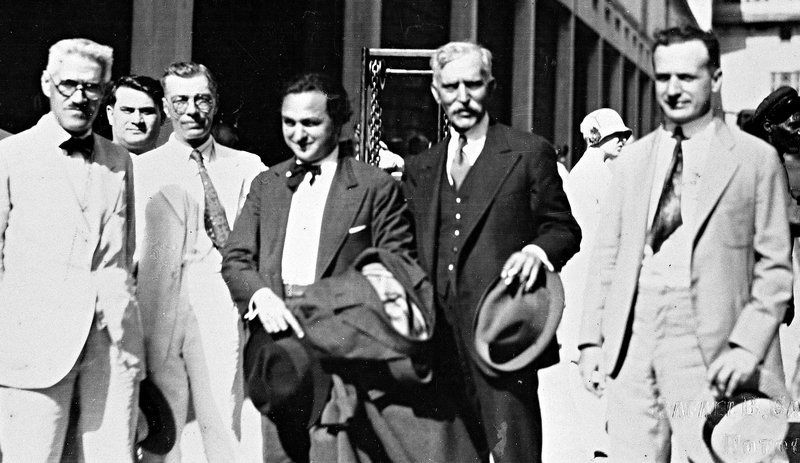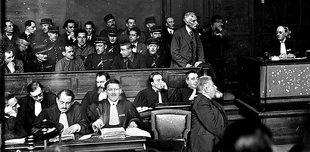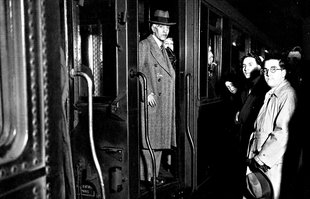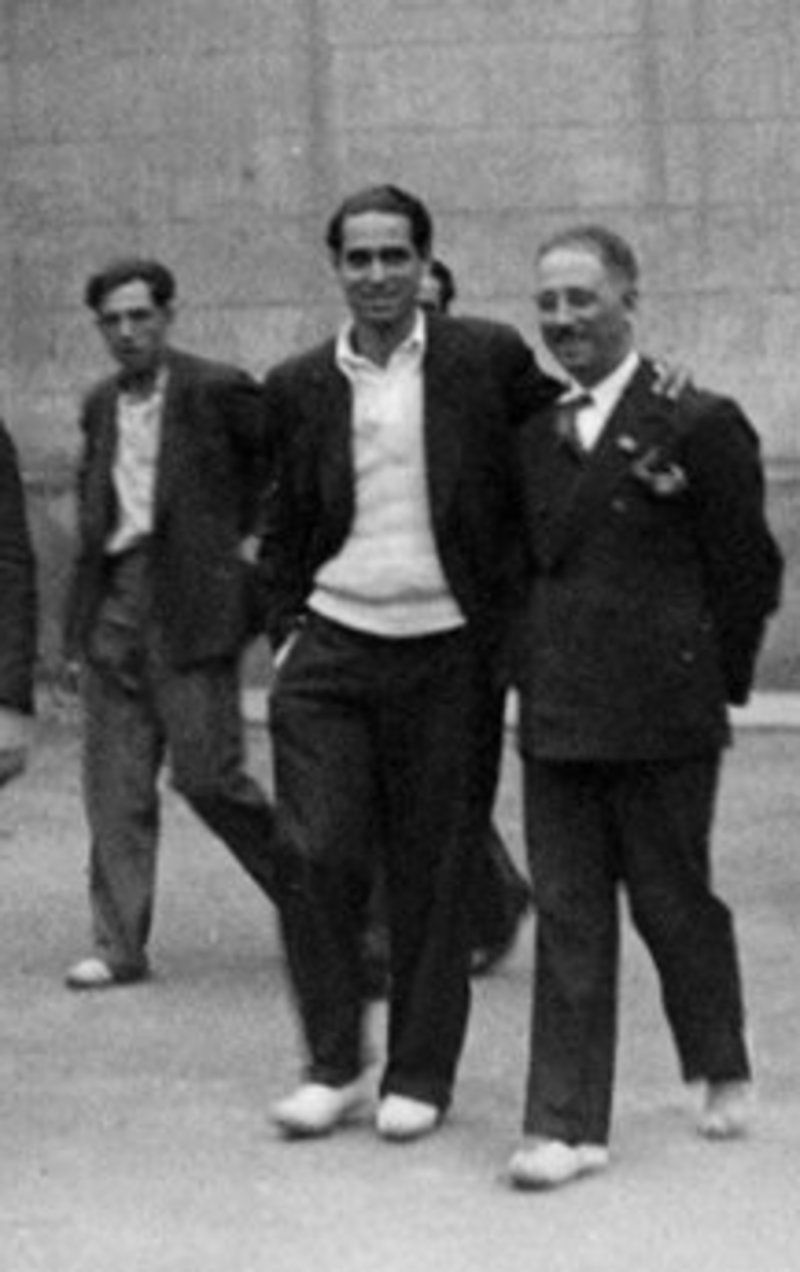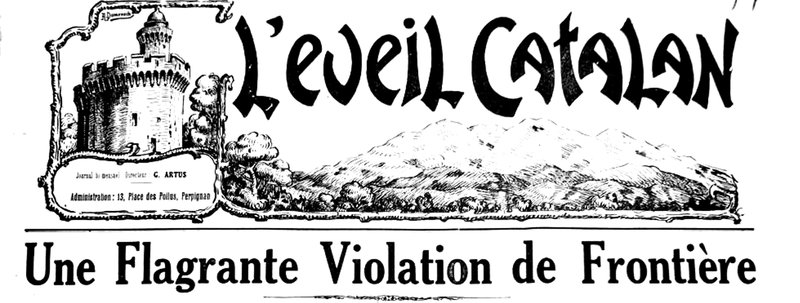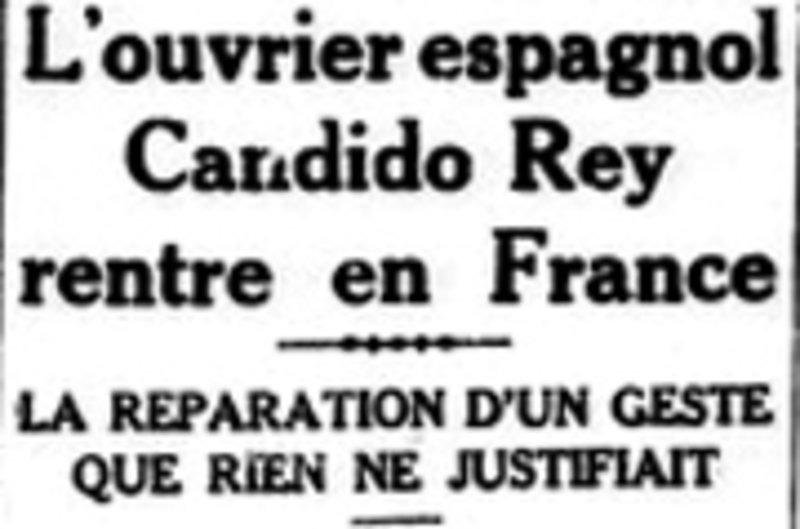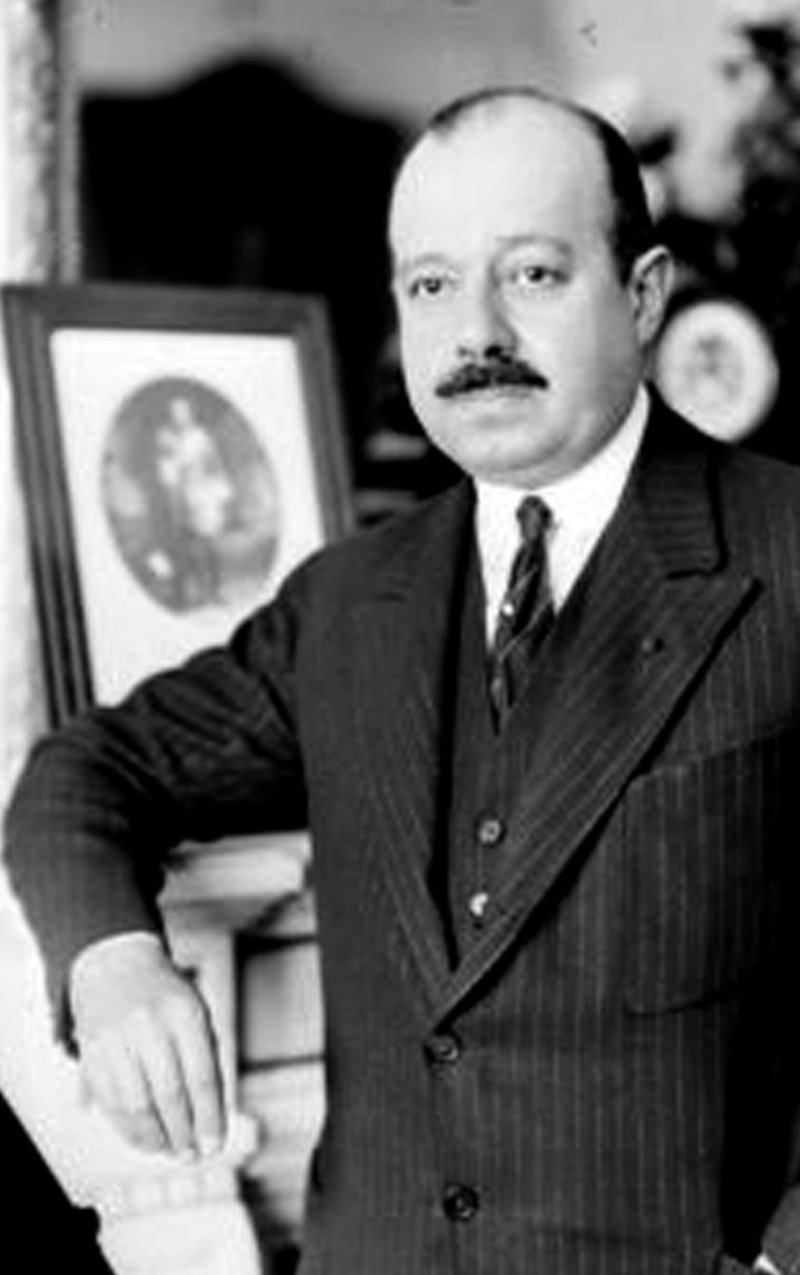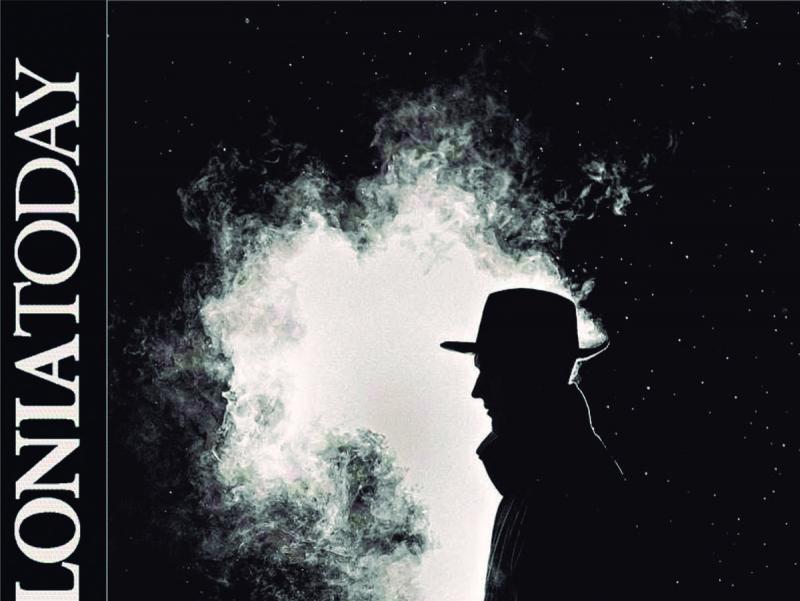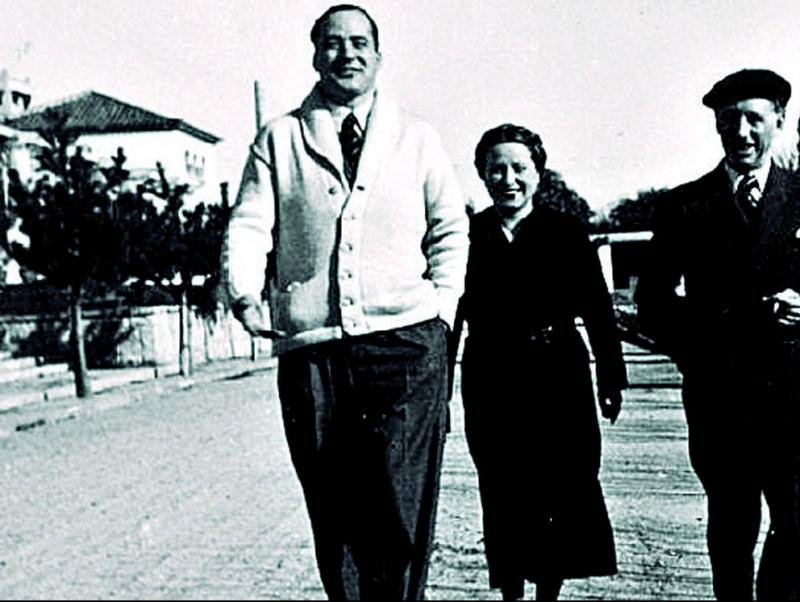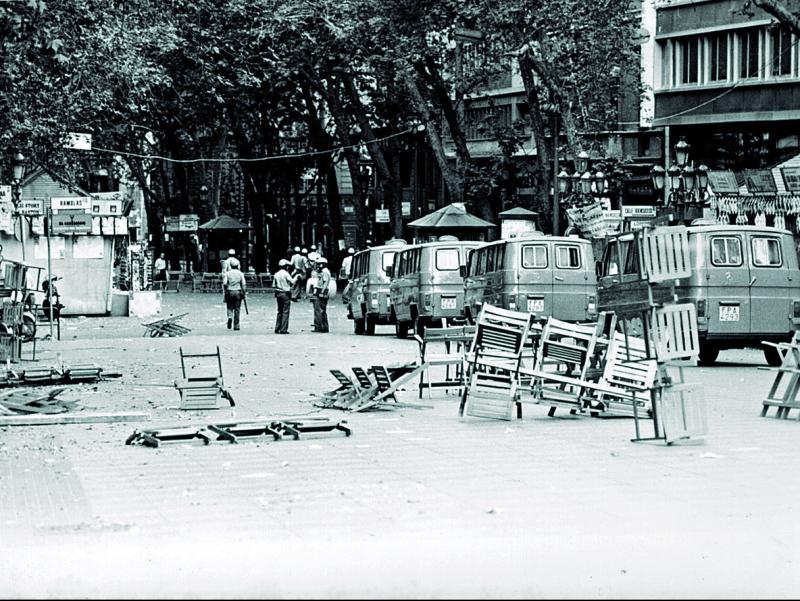The spying has been going on for a long time
With the fallout from the Catalangate scandal dominating the headlines, we take a look at the long history of surveillance by the Spanish authorities on the Catalan pro-independence movement
The Spanish authorities are obsessed with Catalan nationalism.” This reflection is from a report sent by an official in Perpignan to the French interior minister on 20 February, 1926. And if we look at the level of surveillance that the Catalan politicians who sought refuge in France at that time were subjected to, it does seem to have been a faithful reflection of reality. It had been just over two years since the Miguel Primo de Rivera dictatorship had seized power in Spain and had been pursuing separatists both at home and abroad.
Only days after the Primo de Rivera regime took control, military courts were given the power to prosecute “crimes against the security and unity of the homeland… whether orally, in writing, through the press or any other mechanical or graphic means of advertising and dissemination or by any kind of act or demonstration.” At the same time, the regime gave wide ranging powers to the Captain General of Catalonia, Emilio Barrera, who closed down political centres, imprisoned Catalan militants, and even arrested local councillors.
20,000 Catalans
The “obsession with Catalan nationalism” that the official in Perpignan remarked on was evident in any movement of Catalan exiles on the other side of the border. The Spanish authorities used rudimentary procedures, such as ripping down posters or trying to deter protesters, but also outright illegal means, such as arresting people or breaking into homes in French territory.
The historian Giovanni Cattini, who recently published the book ’L’aixecament de Prats de Molló’ (The Prats de Molló Uprising) has conducted a thorough search of the Spanish archives and found many examples of “police surveillance and persecution by the Spanish authorities” along with a good number of letters and reports about the Catalans who lived on the other side of the border. The surveillance of Catalans “was more or less constant from the start of the Primo de Rivera dictatorship,” says the historian. The Spanish ambassador to Paris repeatedly asked the consuls of Perpignan and Toulouse for information on the movements of the “separatist” pro-independence activists and then passed the intelligence on to his superiors or to Primo de Rivera himself.
At that time, more than 20,000 Catalans were settled on the other side of the French border, in Northern Catalonia. The demand for labour caused by the Great War, the lack of opportunities in Spain, fleeing military service in Morocco as well as the repression of the Primo de Rivera dictatorship were the main factors that explain this demographic phenomenon.
Yet the movement of people from one side of the border to the other was nothing new; it had been constant ever since the signing of the Treaty of the Pyrenees in 1659 that ended the Franco-Spanish War that had begun in 1635. However, from the second decade of the 20th century it became particularly intense, and by the end of the 1920s, some 25% of Perpignan’s population had been born south of the border. An article published in 1923 in the magazine Estat Català highlighted the presence of over 12,000 migrants from the south.
Faced with these numbers, the Spanish consul in Perpignan, Juan Bel, and the Spanish ambassador in Paris, José María Quiñones de León, worked hard to keep tabs on the Catalans, with particular focus on what they considered some “especially dangerous” figures. In the summer of 1919, before there was even a pro-independence political party (the first, Estat Català, would not be formed until 1922), Bel kept a close eye on Josep Fontbernat, the head of the Deodat de Severac Choir. Fontbernat had crossed the border on December 13, 1918 to avoid joining the Spanish army. He first settled in Perpignan, where he founded the Cor Català choir. Soon, however, he moved to Toulouse to be close to his musical mentor, Deodat de Severac. In reports, the Spanish consulate noted that the musician had set up the Cor Català “which had performed various renditions of regional songs”. At first Fontbernat did not provoke “any reason for complaint”, but once he had gained the trust of the choir’s members, “he did not disguise his ideas and separatist propaganda”.
A dangerous musician
Fontbernat’s main sin was committed on July 14, the French national holiday. On this day he conducted a concert at which the Catalan anthem, Els segadors, was performed, an initiative that provoked a split in the Cor Català. From then on, note the reports, the musician continued “with his propaganda, exciting other Spaniards who were separatists, but who had kept their ideas dormant.” Very concerned about Fontbernat’s actions, the consul made assessments about his state of mind: “His young age misleads him and he does not measure the consequences of his actions well.” Bel also did not hide the fact that he wanted to be rid of the musician and recommended to the Spanish ambassador in Paris that “he establish his residence in some other place where he cannot spread his propaganda.”
Fontbernat came into contact with another figure who was considered “dangerous”: Francesc Macià, the politician who founded the Estat Català pro-independence party and who would later become Catalan president. In mid-October 1923, a few days after the Primo de Rivera coup, Macià had managed to evade an arrest warrant issued by the civil governor of Lleida and had set himself up in the Hotel de France in Perpignan. The Spanish authorities followed his movements closely. On 17 February, 1924, the same ambassador reported that he had brought an event organised for Macià to the attention of the French authorities. The ambassador, who was short of staff, pointed out that the French prime minister, Raymond Poincaré, had promised to send French police officers to spy on the event and “to study what can be done to prevent the political propaganda of the Catalan associations”. In fact, in a number of letters to Primo de Rivera, the ambassador complained about his lack of resources, arguing that he only had 158 pesetas to oversee a colony of over 20,000 Catalan exiles.
Another focus of Spanish espionage was the city of Toulouse, where there was an active nucleus of Catalan nationalists and which was home to one of Estat Català’s paramilitary squads known as escamots. In 1924, in response to the Catalan literary event known as the Jocs Florals that were held in the city, the consul Antonio Gullón wrote: “this consulate is always alert and anticipates any surprises from the separatist elements taking refuge here.” The consul also praised the talks he had held with the mayor of Toulouse to avoid “the note of scandal that could be sounded by the pro-Catalan demonstration that was being prepared” and described the literary event in a somewhat hysterical manner: “It was a strident manifestation of Catalan nationalism, exploiting the themes of homeland, faith and love to sing the anthem of the Catalan Nation oppressed by the dictatorial despotism of a Castilian government and to present themselves to the outside world as a people thirsty to pursue their own destinies but enslaved by the unjust yoke of a tyrannical people.”
Yet the consul was not only spying on the Catalans but he also resorted to sabotage. On 16 June, 1924, he informed the ambassador that pro-Catalan symbols had appeared around the city centre and on the façade of the main post office building, and that he had given precise orders to his staff: “I have made sure they disappear and that they be taken down immediately.” Gullón had also become aware of the international efforts of the Catalan pro-independence movement: “They are very optimistic about the outcome of the proceedings before the League of Nations. They insist that they have the unconditional support of the small states that achieved independence at the end of the European war and that they have pledged their votes in favour of recognising the legal official status of the language and their independence as a nation.”
The consul’s concerns, however, were not only focused on the diplomatic efforts of the Catalans, but also on issues that on the face of it were not particularly dangerous to the integrity of Spain: “Collections of separatist symbols have been sent out to be put up in public spaces... The director of the choir [Fontbernat] has received a large consignment of neckerchiefs in the separatist colours, which he has distributed among all the choir members, who constantly wear them openly, flaunting them.”
In their crusade against the Catalan nationalists, the Spanish authorities never stopped putting pressure on the French. An example is the celebration of the cultural gathering known as the Aplec d’Occitània. Days earlier, Gullón had reported that he had had a “long interview” with the prefect and that he had made it very clear that “the time had come to speak clearly and to find out whether the French authorities were really friendly with Spain or whether they only seemed so and were prepared to tolerate the Catalan nationalist manoeuvres, which are already too frequent, suspicious and intolerable”. Gullón also spoke to a municipal official, telling him that he could “no longer tolerate the double-sided game of the Municipality of Toulouse and that giving prerogatives and belligerence to the Catalan nationalist elements was quite simply anti-Spanish policy”.
With Macià expected to attend the event, the consul tried to prevent the gathering from taking place, but did not succeed. He then focused his efforts on preventing Els segadors from being included in the programme. On the day of the concert, a police commissioner warned Fontbernat that if Catalonia’s unofficial anthem was sung, he and Macià would be arrested and expelled from the country. Yet Fontbernat disobeyed the order and the choir went ahead and sang the anthem: “The girls in the choir sang with their faces pale with anguish at the fear of being put in prison,” Fontbernat would later explain. The problem for the Spanish authorities was not only the rendition of Els segadors but also the speech that Macià gave in French and Catalan, in which he exposed “in all its crudeness, his political ideology amid derogatory phrases about the Spanish nation and its rulers”. After completing his speech, the leader of Estat Català joined in with the singing of Els segadors to the consul’s great despair.
Frustrated invasion
However, the pursuit of independence was focused not only on propaganda activity but also on preparations for a military confrontation with the Primo de Rivera dictatorship. At the end of 1924, the consul of Toulouse sent a long report to the ambassador in Paris, Quiñones de León, informing him that “members of the separatist party led in France by Francesc Macià have begun activities such as creating secret committees, keeping files on members, and each individual adopts a codename so that their correspondence is anonymous”. All this led him to conclude: “The Catalan nationalist organisation is taking on a military character. Not only have companies been created but recruitment operations are also being carried out… According to the orders that Mr Macià has addressed to the groups, the military training of these has begun in full, with training marches, and I am assured that learning in the use of the arms has even begun, with instruction in shooting and the construction of trenches.”
Macià’s plan to invade Catalonia with two armed columns and set up a republic known as the Prats de Molló plot was discovered and aborted in 1926, but the international attention that Macià went on to receive was infinitely greater than he would otherwise have obtained. During the trial in Paris that followed, which was covered with particular interest by the French press, the former colonel spoke out in support of the Catalan national cause. In his first address to the court, Macià referred to the Catalans that were implicated in the trial as embodying “the persistence of the rebellious spirit of the oppressed Catalonia”. What is more, Macià spoke very much with French society in mind: “We want an independent Catalan Republic that is part of the consortium of Iberian peoples. A democratic and peaceful state alongside this free France for which 12,000 Catalan volunteers died in Verdun,” he said at one point.
Macià also recalled that his goal was to destroy the Spanish monarchy, which he pointed out had traditionally been “an enemy of France” and that he would make Catalonia a “kind of Belgium in the Pyrenees”. The reporting of his words in the French press – as compared to the Spanish press – shows that Macià managed to get his message across, and the myth of the nation’s ’Grandfather’ who was willing to do anything for the freedom of his country began to take shape.
feature A history of spying on Catalans
feature A history of spying on Catalans
feature A history of spying on Catalans
Monitoring Companys
The officials in charge of the surveillance of the MP Mr Company (sic) inform me that yesterday he left his home at ten thirty and went by car together with Mr Soriano and Mr Layret to the house of the Count of Romanones. From there he went to eat at the house of Mr Soriano, where they entered at two o’clock. At four o’clock in the afternoon, Mr Company (sic) left and went to the Congress, where he stayed until nine thirty when he returned to his home.” The excerpt above is part of General Directorate of Security documentation in the National Historical Archive that has been recovered by the historian Josep M. Figueres. There are hundreds of these reports, covering the period from 1920 to 1924, into the Primo de Rivera dictatorship. They show that Lluís Companys was followed systematically, and not only when he went to have coffee with friends or lunch with his family, but also when he met ministers or when he attended the Congress, as in the report quoted above, which is dated 12 February, 1921. In some periods in which he was spied on, the future Catalan president held no public office and was merely practising as a lawyer; at other times he was a Member of Parliament with a public agenda. In his memoirs, Francisco Madrid, who was his secretary in the civil government in 1931, explains that the first thing Lluís Companys did when he took office was to consult his police file, which was especially voluminous.
A “flagrant border violation”
On 8 February, 1926, a group of six civil guards and two carabinieri crossed the French border and broke into a farm near Coustouges. There were four Catalan militants in the house. The French press reacted with indignation at the “flagrant border violation”, as the Evéil Catalan newspaper called it and the incident caused a scandal in the French press. Yet dictator Miguel Primo de Rivera denied the incident had taken place. In the words of historian Eduardo González Calleja, “this kind of unilateral intervention caused more concern among the French authorities than the subversive activities that they sought to stop.”
A kidnapping in France
On 27 August, 1924, while distributing propaganda against the dictatorship of Primo de Rivera in Perpignan, activist Cándido Rey was arrested by order of the Spanish consul and moved to Spanish territory. It was a full-fledged kidnapping that was condemned by the French press and the authorities, who expelled the Spanish consul in Perpignan and demanded Rey be handed over. At first, Spain’s military regime tried to use Rey as leverage to demand the repatriation of Francesc Macià, but the attempt failed and Rey was returned.
The spying ambassador
Spain’s ambassador in Paris, José María Quiñones de León, was committed to spying on the Catalan separatists. In his letters, he constantly demanded information from his collaborators, which he passed on to high-ranking officials of the dictatorship and even to Primo de Rivera himself. He also complained insistently about the alleged tolerance of the French authorities. He was born in Paris in 1873, after his father accompanied Isabel II into exile, and he died in 1957 in the same city. He began his diplomatic career as an attaché, and in 1918 the Conservative politician Antonio Maura appointed him ambassador, a position he held until 1931. On 14 April of that year, when the Second Republic was proclaimed, he resigned and became a devoted servant of the dethroned Alfonso XIII.


